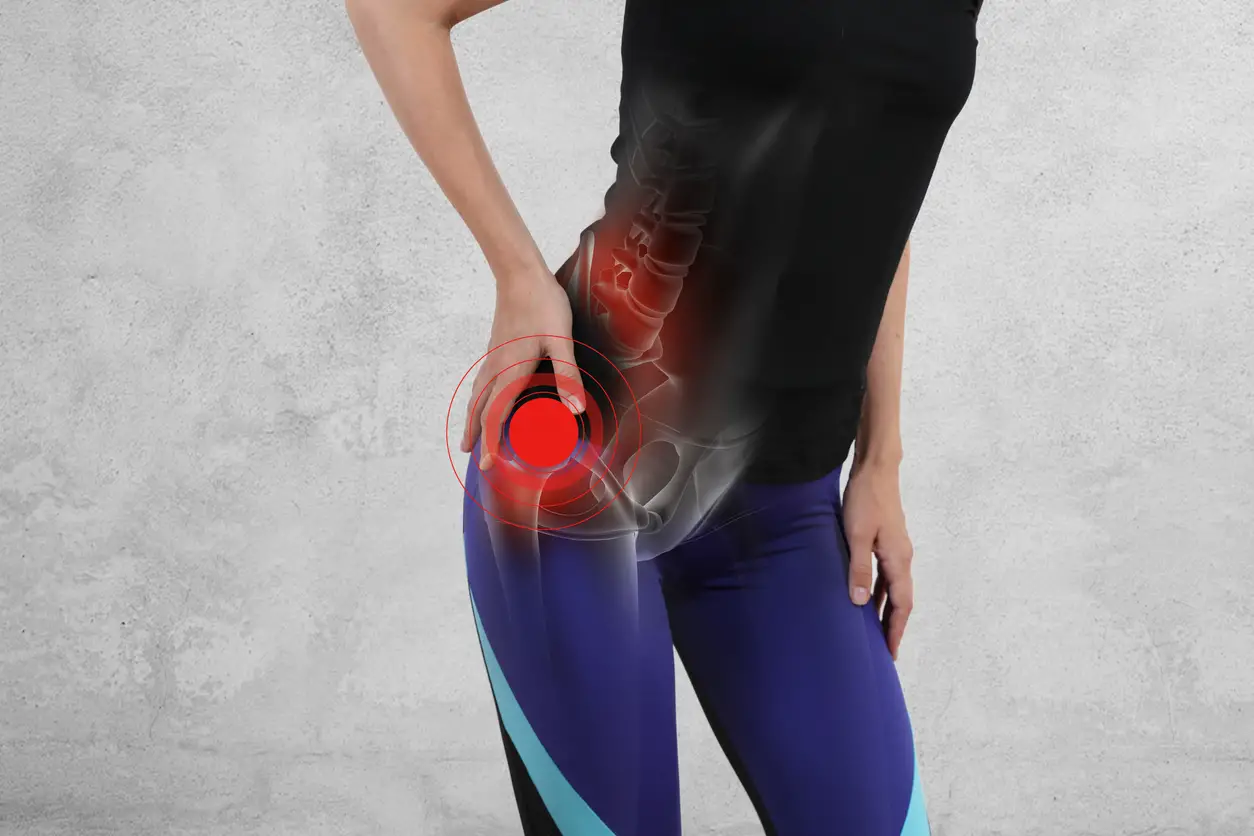Hipbone is a very important part of your body. It gives you an ability to stand, walk, run, or dance. Hip pain can make your life really harder and interfere with everyday activities. You can feel it as if your life is being put on hold. Whatever you do, your hips experience a fair amount of wear and tear. However, your joint isn’t indestructible and hip tendons may get overused. It is very important to detect hip disorders in a timely manner and prevent complications.
Below 6 common conditions that may affect your hip and cause hip pain are listed.
1. Stress fracture
Hip stress fractures is a widespread condition that often affects athletes. High-impact sports like long-distance running puts an excessive load on hip, making it weak. However, along with athletes, all people that extremely overstrain hip run a risk of a hip stress fracture.
The treatment usually consists of rest, avoiding the impact activities, and pain relievers (if pain interferes with normal life).
2. Osteoarthritis
Osteoarthritis is a fairly common cause of hip pain. It affects about 7 million people every day, according to the CDC. There are many different factors (age, trauma) that may increase your risk of osteoarthritis. As a result of osteoarthritis, the cartilage that cushions the joints breaks down. Thus, any movement causes your bones to rub together. This may trigger pain and stiffness in the pelvic area or restrict your range of movements significantly.
Hip osteoarthritis requires conservative treatment. However, if it doesn’t help then a hip replacement surgery is an option. A stem cell therapy for hips also has potential in a hip osteoarthritis treatment.
3. Gynecological diseases
The pain that seems to appear in the hip may actually arise due to certain pelvic problems. Many organs of your pelvis are located close to each other. For this reason, you may be confused about where the pain is coming from. If pain arises closely to your periods or ovulation, then endometriosis or fibroid may be to blame. Certain gastrointestinal and urological issues as prostate cancer may also cause hip pain.
It is extremely important to visit your physician if your experience hip pain due to unclear reasons. Depending on the diagnosis your doctor may refer you to another specialist for treatment.
4. Tendonitis
Tendonitis may affect any tendon that surrounds your hip joint. This condition is characterized by inflammation, irritation, and swelling of the tendons. Tendonitis is a pretty painful condition that can make it difficult to move. The main risk factors for tendonitis are overuse of hip tendons, injury, and age. While you age the tendons lose their elasticity. This makes seniors more prone to tendonitis development.
The treatment of tendonitis often consists of the RICE program (rest, ice, compression, and elevation). The doctor may also prescribe you anti-inflammatory drugs to relieve inflammation and pain.
5. Dislocation
Certain blunt force injuries like an accident or sports trauma may cause a hip joint dislocation. Thus, the ends of the bones move from their normal position. Hip dislocation is very painful and can completely immobilize your hip joint. It becomes impossible to run, walk, and perform everyday tasks.
First and foremost, the doctor will try to relocate your hip to the right place. The patient often requires sedative medications and muscle relaxants to allow the hip to be relocated. This injury is quite painful so the doctor may also prescribe you pain relievers.
6. Osteonecrosis
Reduced blood flow to the joints may cause a disease called osteonecrosis. The lack of normal blood flow makes the bone break down faster than the body can make enough new bone cells. Thus, old cells die and your bone may be ruined.
The treatment usually starts with pain medications and bed rest. If osteonecrosis is getting worse, then the patient may need a core decompression procedure.






